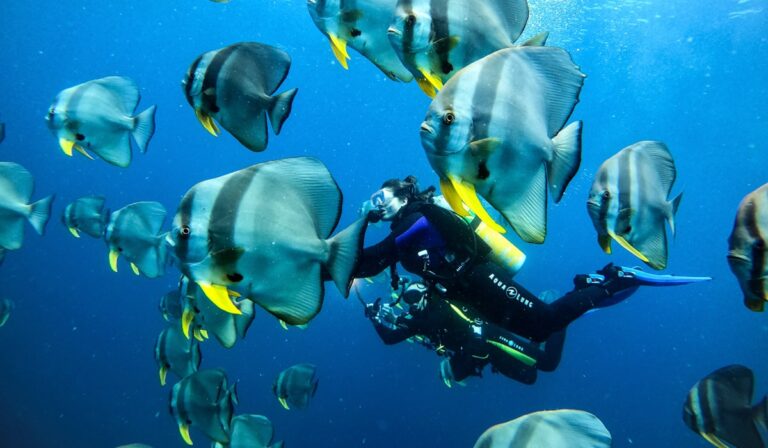10 Facts About Sharks That Will Change How You See Them
Introduction:
Sharks have long been misunderstood, often cast as ruthless predators of the deep. Popular culture, from Jaws to countless documentaries, has painted them as fearsome creatures, but sharks are complex, vital components of ocean ecosystems. Despite their somewhat intimidating reputation, sharks deserve our admiration and respect.
If you’re ready to reconsider your view of these remarkable creatures, here are ten facts about sharks that will change how you see them.
- Sharks Have Been Around for Over 400 Million Years
Sharks are among the oldest creatures on Earth, predating even the dinosaurs. Fossil evidence suggests that sharks first appeared during the Silurian Period, around 420 million years ago. This means that sharks have survived five mass extinctions, proving their resilience and adaptability. Their survival throughout these catastrophic events is a testament to their evolutionary success and their crucial role in maintaining the health of marine ecosystems.
- There Are Over 500 Species of Sharks
Contrary to the typical image of sharks as large, menacing creatures like the great white, the reality is much more diverse. T, ranging in size, shape, and behavior. The smallest shark, the dwarf lantern shark, grows to just 7 inches long, while the largest, the whale shark, can reach lengths of up to 40 feet. Some sharks, like the hammerhead, are known for their distinctive appearance, while others, such as the Greenland shark, live in the cold waters of the Arctic and can live for centuries.
- Sharks Can Live for Decades (or Even Centuries)
Many shark species have impressively long lifespans. For example, the Greenland shark, one of the longest-living vertebrates on Earth, has been known to live for over 400 years. These slow-growing creatures take decades to reach maturity, making them particularly vulnerable to overfishing. Sharks in the deep ocean, like the Greenland shark, often live in remote, colder waters, where they thrive at a pace much slower than their warm-water counterparts.
- Sharks Have a Unique Way of Sensing Their Environment
Sharks possess a sophisticated sensory system that allows them to detect the faintest electrical signals in the water produced by the movements of living organisms. This sensory system is known as the ampullae of Lorenzini, a series of electroreceptors located around their heads. This ability to sense electrical fields helps sharks hunt even when prey is hidden or camouflaged. This heightened sense of “electroreception” is also helpful for navigation, allowing sharks to track migratory patterns across vast oceanic distances.
- Sharks Are Critical to Ocean Health
Sharks play a vital role in maintaining the balance of marine ecosystems. As apex predators, they regulate the populations of other species, ensuring that no single species dominates the ecosystem. This balance helps prevent the depletion of other marine life, from fish stocks to coral reefs. Smaller fish populations could explode without sharks, leading to entire ecosystems’ collapse. In some areas, such as the coast of the Bahamas, the decline in shark populations has been linked to imbalances in the population of herbivorous fish, affecting coral health.
- Sharks Are Very Low in Numbers
Despite the widespread fear and myths surrounding sharks, they are relatively scarce in our oceans. According to recent statistics from the International Union for Conservation of Nature (IUCN), a third of shark species are considered threatened with extinction. Overfishing, habitat destruction, and the demand for shark fins have rapidly declined shark populations. The decimation of shark numbers, especially in the deep ocean, can have disastrous consequences for marine biodiversity.
- Sharks Can Be Endangered
Many species of sharks are currently classified as endangered or critically endangered. For example, the sawfish, a type of ray-finned shark, has seen its population plummet by over 80% in the last few decades. The IUCN Red List categorizes several shark species as vulnerable due to overfishing, habitat loss, and the global trade in shark fins. Efforts are underway worldwide to protect these creatures, including shark sanctuaries, fishing regulations, and awareness campaigns.
- Sharks Can Regrow Teeth Throughout Their Lives
One of the most fascinating features of sharks is their ability to regenerate teeth continuously throughout their lives. Some species can lose and grow back thousands of teeth during their lifetime. This unique trait allows sharks to maintain their ability to hunt and feed efficiently. A shark’s teeth are not anchored like human teeth; they are part of a conveyor belt system, where new ones regularly replace old teeth. A great white shark, for instance, can grow and shed over 30,000 teeth during its lifetime.
- Sharks Have Complex Social Behaviors
While sharks are often seen as solitary creatures, many species exhibit complex social behaviors. For instance, hammerhead sharks are known to swim in schools, particularly during their mating season. Some species of sharks have also been observed exhibiting cooperative hunting techniques. The idea that sharks are lone predators with little social structure is an outdated misconception. They are intelligent creatures capable of intricate social interactions and behaviors.
- Sharks Are Essential to Climate Regulation
Sharks play an essential role in regulating carbon levels in the ocean. As apex predators, they help maintain the balance of marine species, many of which contribute to carbon sequestration by absorbing carbon dioxide. When shark populations dwindle, the imbalance in these smaller species can lead to decreased efficiency in carbon absorption, further exacerbating climate change. This makes sharks not just a critical part of ocean health but also of global climate regulation.
A Call for Conservation
As we gain a deeper understanding of sharks, it becomes clear that their preservation is crucial not just for marine biodiversity but for the health of our planet as a whole. With proper conservation efforts, including stricter fishing regulations, marine protected areas, and public awareness campaigns, we can help ensure that sharks continue to thrive in the deep ocean and beyond.
By shifting our perspective and appreciating sharks’ resilience, intelligence, and ecological importance, we can move toward a future where these magnificent creatures are preserved for generations. So next time you encounter a shark, either in person or through the media, remember these facts and consider their profound role in our oceans and world.







